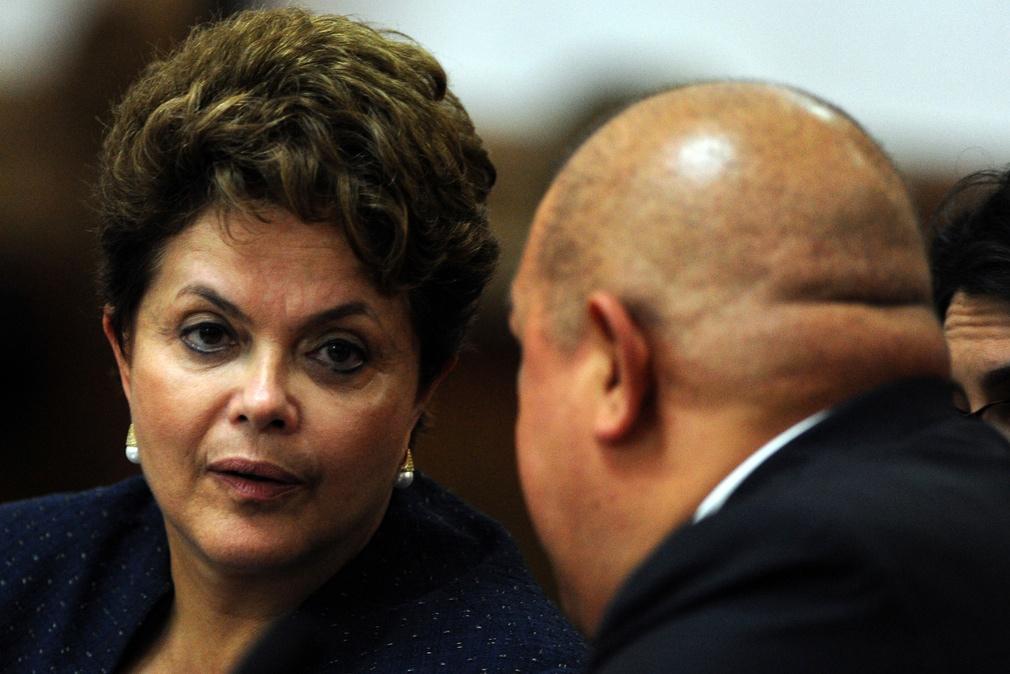In North v. South, South wins this time
In the club: Rousseff and Chavez
The US and Canada might have felt a little left out over the weekend, as leaders from Latin American and Caribbean nations formally launched a new bloc in the western hemisphere — one that doesn't include the two big powers.
The occasion? The struggling global economy, which the industrialized nations have managed to push to the brink of collapse.
The answer? Regional cooperation and integration, the states decided.
Per the AP:
"It seems it's a terminal, structural crisis of capitalism," Bolivian President Evo Morales said in a speech Saturday. "I feel we're meeting at a good moment to debate … the great unity of the countries of America, without the United States."
The narrative works well for leaders like Morales and Venezuela's president, Hugo Chavez, who have advocated a brand of Latin socialism that rejects the West's capitalist bent.
But the idea that the old Western powers no longer have all the answer has also been embraced by Brazil's Dilma Rousseff, the first woman president of that nation and leader of the region's most powerful economy. The US, and Europe, no longer dominate the conversation or have the clout to dictate terms. That's a point that Rousseff hasn't hesitated to make.
When the International Monetary Fund showed up in Latin America last week, it was with a begging bowl.
Latin America hasn't been dented as hard amid the global financial crisis. It grew about 5 percent last year and while that's been revised downward for this year, the region is still doing all right. Poverty is at a 20-year low.
At the summit over the weekend, the new 33-nation bloc was lauded by, who else? Chinese President Hu Jintao. In a letter, Hu said he'd deepen cooperation with the group. While the US remains a major trading partner, China's elbowing in, especially in Brazil and Chile, where it now trades more than the US.
Trade wasn't the only topic at hand. Delegates also discussed whether the militant antidrug efforts, largely funded and backed by the US, were the right approach. Colombia's Juan Manuel Santos brought that one up, of course. He's been pushing even to legalize cocaine, a move that the US thinks is absurd, but one that Mexico might at least tentatively back.
They also discussed climate change, which is basically an illegal topic of conversation in the US.
It's unclear how invested these nations will be in the new body, known as Celac, or Community of Latin American and Carribean States. But one thing is clear: the US isn't running this region anymore.
Every day, reporters and producers at The World are hard at work bringing you human-centered news from across the globe. But we can’t do it without you. We need your support to ensure we can continue this work for another year.
Make a gift today, and you’ll help us unlock a matching gift of $67,000!
